Photographs: Reinhard Krause/Reuters N Sundaresha Subramanian in Male
In the 1960s, Maldives was not the tourist hotspot it is today. Fishing was the main occupation. Every week, a Ceylonese (as Sri Lankans were then termed) carrier operated a flight to and from Colombo with dried fish export from the islands.
One day, old timers said, Sri Lanka stopped this service, citing poor landing conditions in the aerodrome, a British-era relic with a runway of steel plates.
The move hurt President Ibrahim Nasir and the Maldivians deeply and they took it as a challenge. "It is legendary," says Moosa Latheef, editor of Haveeru, the most circulated newspaper in the archipelago's capital here.
"The president called the people to come together to build the airport. People not only contributed money from whatever little they earned, they took boulders from the sea with bare hands. They brought sand on dhonis (boats)," he adds, describing the birth of the airport on Hulhule island, a 10-minute ferry ride from here.
Several Maldivians opposed to the development agreement with GMR assert this history and emotional attachment are not the primary reasons they oppose the deal.
"The agreement had many flaws," said Abdullah Humaid, a leader of the Adhaalat Party, perceived to be a radical right-wing party. Adhalat's chief, Sheikh Imran, has been spearheading the 'Go home, GMR' campaign in the neatly-laid and narrow magus (roads) of Male.
Speaking to Business Standard hours after the Maldives Airport Company (MACL) officially took over the operations of the airport, Humaid said, "The bidding process was questionable. We had knowledge that GMR was not initially qualified but was later included. Any business deal has to be profitable to both parties. In this agreement, Maldives was at the losing end. The airport is our biggest asset. No Maldivian could imagine a situation where we have to pay foreign companies to run our airport."
Other issues
Apart from the now much-repeated skewed financial terms of the GMR agreement, the development model of Hulhule itself was contentious, say officials.
The original master plan for airport development had proposed a second runway on the western end of the island. However, under the revised plan for which an agreement was signed with GMR, this plan was dropped and the proposed new terminal was to come in its place.
...
Why GMR's project was not good for Maldives
Image: Male International AirportPhotographs: Courtesy, Maldives Airports Company Limited
On the eastern end of the island, where the present terminal stands, GMR proposed to build a business centre-cum-shopping and entertainment area.
This was a double whammy for the locals, say Maldivians. Development at the eastern side of Hulhule on the scale planned by GMR would wean away shoppers and tourists from Male, while the second runway plan, which would have enabled more tourist traffic and economic growth was shelved.
Tourism Minister Ahmed Adheeb says the GMR plan did not take into account several local realities.
"The Dubai or Changi model would not work here. People don't come here to shop. They come to Maldives to relax. They want to land as early as possible and check out as late as possible."
Adheeb said this kind of traffic calls for more efficient, services rather than huge infrastructure such as the proposed new terminal. Adheeb says the new management will focus on improving passenger services in the airport.
"We don't need a Taj Mahal," said Mohammed Ibrahim, managing director and chief executive officer, MACL.
"Our traffic is a million (passengers per year). Why do we need capacity for five million now? We will develop gradually, as and when the need arises. That is how we have come this far."
Ibrahim first joined the airport as a junior employee in 1972 and served it for several years. He fondly recalls his student years in Bangalore's Jayachamaraja Wodeyar Engineering College.
He is upbeat and showed no nerves at all during the handing over ceremony on Friday midnight. "We have run it for 40 years. We can run it now."
...
Why GMR's project was not good for Maldives
Image: Maldives' ex-President Mohamed Nasheed whose government awarded the contract to GMRPhotographs: Dinuka Liyanawatte/Reuters
Ibrahim Faisal, chief of the Maldivian civil aviation authority, the regulator, said he did not foresee any operational issues due to the transition.
"All the staff are the same. They were with MACL before. Then they became GMR employees. Now they are back. Only the management has changed. Nothing changes operationally."
Faisal, however, said the second airstrip should be an immediate priority. "At present, there is no provision for any emergency. The closest runaway where a decent aircraft can land is 300 nautical miles south, at Gan."
Aftermath
A concern that has arisen over recent days is how the government would manage to fund the airstrip's development, especially when the damages that GMR may claim for the termination loom large.
When asked if the government had enough funds to meet the damages that some estimates put up to $700 million for this termination, Uza Aishath Azima Shakooru, attorney general of Maldives, shot back, "Who is floating these numbers? We have filed for arbitration. Normally, these proceedings can take two to three years. Who knows, at the end of it, GMR might have to pay damages to us."
She shut off further queries, saying she would "reserve her legal arguments for the actual proceedings."
Humaid of the Adhalat Party says these exorbitant numbers are floated by ex-president Mohammed Nasheed.
"Not much investment has taken place. Whatever development has happened so far is only cosmetic. We are hopeful that it (compensation) would not be the big number Nasheed has been floating."
...
Why GMR's project was not good for Maldives
Image: GMR Group chairman and MD G. M. RaoPhotographs: Courtesy, GMR Group
Amir Ali, a GMR official here, said the company invested up to $11 mn in the interim arrangements made at the existing airport, in the form of a new duty-free concourse in the departure area, an upcoming food court and other passenger amenities. This is in addition to the $78 mn upfront fee paid to the government.
"Further, we have also reclaimed land on the western side, where the new terminal was proposed to come up. Considerable dredging and reclamation has been done and the foundation has been laid," he aid.
The AG and her deputy, Ahmed Usham, have been busy managing a slew of cases that have been filed in Singapore. They said they had no option but to terminate the agreement as it was "void ab initio" (meaning, invalid at the outset).
Adding up
Most Maldivians who have followed the events over two years say the deal was doomed from Day One. Latheef recalls how at the ceremony of the inking of the original agreement between GMR and Maldives government, lawyers and officials from both sides were still reading and trying to understand the papers.
"There was hardly anything ceremonial. People were tense. Many of them simply had not had enough time to go through the document and appreciate the various issues. It was all done in great hurry."
The holes in the agreement were soon exposed, as the provision to levy an Airport Development Charge was stuck down by a civil court in January 2012. G M Rao, who was in Male for the ground-breaking ceremony for the new terminal, told local media, "The government should settle the ADC problem."
Citing a cabinet investigation report in the local Dhivehi language, Lateef described the controversial sequence of events as follows: On January 5, 2012, GMR asked MACL to allow it to deduct the loss on account of non-levy of ADC from the revenue share payable by GMR.
The same day, MACL sent a letter to the finance minister, asking if the GMR request should be heeded. The finance ministry sent a letter to the then Attorney General for legal opinion. The AG gave an opinion that the civil court verdict appeared "politically motivated".
...
Why GMR's project was not good for Maldives
Image: An aerial view shows a resort islandPhotographs: Reinhard Krause/Reuters
This, Latheef says, gave a window of opportunity for the government, as the GMR agreement had a clause that the government would compensate GMR for losses caused due to "political disturbances".
The report also described how the same lawyer drafted both the application by the company and the finance minister's letter sanctioning the request.
Nasheed, who had to step down soon after was himself unreachable. He was said to be touring in the northern parts of the country, campaigning for the 2013 elections. Critics say Nasheed is accompanied by about 300 people on these tours.
"All of them have to be fed and taken care of. In Maldives, it costs a lot. Where does he get the money from?" asks one. A spokesperson of Nasheed's MDP party did not respond to queries sent on email.
Nasheed supporters believe there are big resort business interests behind all these patriotic calls to save the airport and other economic reasoning.
Shafiq, a 30-something professional, said at least two local businessman have stakes in a smaller airport and they see the development of a mega airport as a threat to their own prospects.
Interestingly, even as the GMR issue was simmering, the government extended the lease of Villa Shipping and Trading Company over Mamigili Airport for 99 years.
The decision was made by the majority of the cabinet's Economic Committee. The Villa Trading Company is owned by the president of the Jumhoory Party, Gasim Ibrahim.
He is said to own a number of resorts in and around Mamigili and operates sea plane services under the name Trans Maldives Aviation (TMA).
...
Why GMR's project was not good for Maldives
Image: The Maldives President Mohammed Waheed whose government terminated GMR's contractPhotographs: Reuters
Gasim's partner in TMA and Maldives' leading tour operator, 'Champa' Afeef, is also said to have bought a 30 per cent stake in Addu International Airport through his Kasa Holdings.
Locals says Vaddu atoll (province), which is near this airport, has numerous islands that can be developed into resorts and has great tourism potential once the airport gets fully developed.
Proximity to the airport has a multiplier effect, as tourists find speed boats and other transport modes too expensive. A 45-minute speed-boat ride can set one back a whopping $100 (double for return). Most resorts charge for transport from the airport separately.
Ahead
In a country where tourism is everything, owning and operating airports and airline services seem to be logical forward integration for tour operators.
On the other hand, GMR, which entered Maldives as an airport operator, was eyeing a pie of the tourism sector by proposing to develop the eastern shore of Hulhule.
Now, with GMR getting out, these local players who will soon have 'experience' in developing airports can be roped in for development of Male airport itself. Without the outsider tag, they could have their way easier.
The game definitely is larger than technical irregularities and corruption, said Shafiq, who was educated in Malaysia and has relatives in India. He also doesn't have kind words for the radicals.
"They get their ideas from Pakistan, where they spend some 10-15 years. So, they are pouncing on India. They do not have any business interests. So, they don't care what happens to business and tourism. But they seem to have a lot of money. I wonder where they get it from."
...
Why GMR's project was not good for Maldives
Image: International airport buildingPhotographs: Courtesy, Maldives Airports Company Limited
Even the Maldivians who are happy to see the back of GMR are not keen to antagonise India. "We are dependent on India for medical facilities, lifesaving drugs and even everyday items such as vegetables and rice. Similarly, other investments in Maldives, such as that of the Tatas, are safe and thriving," Latheef said.
"The airport issue was a one-off and should not be made a reference point for our multi-faceted relationship."
Meanwhile, the staff of GMR is busy packing their files and equipment from their sprawling first-floor office at the GMIAL administrative building.
"We will be moving to a smaller space in the adjacent building. They want to move in here," said an official, stacking the box files neatly for transfer.
By yesterday morning, the office was pretty much deserted, except for a few Telugu voices. Blue T-shirts carrying the MACL logo have already replaced white GMR ones in the airport premises. "Your journey; our business," the slogan on the T-shirt says.
More than meets the eye?
- Was a second runway on Western end a contentious issue?
- GMR's realty and hospitality plans for the east side also ruffled feathers
- Radicals with no business agenda have led campaign against GMR
- Powerful resort businessmen also venturing into airports business
- Will they occupy the vacuum created by GMR exit?

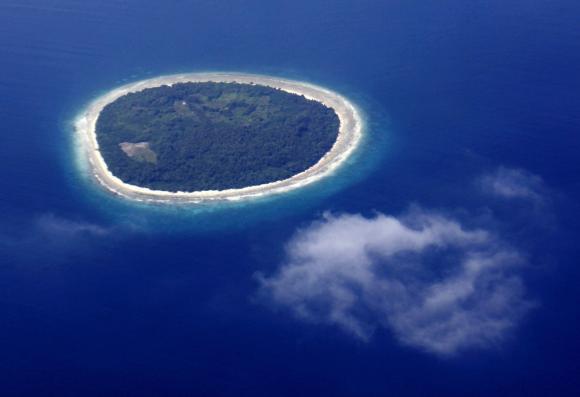
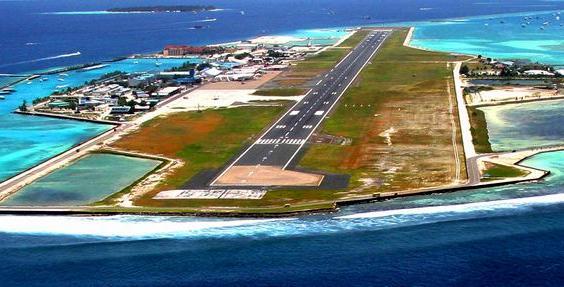


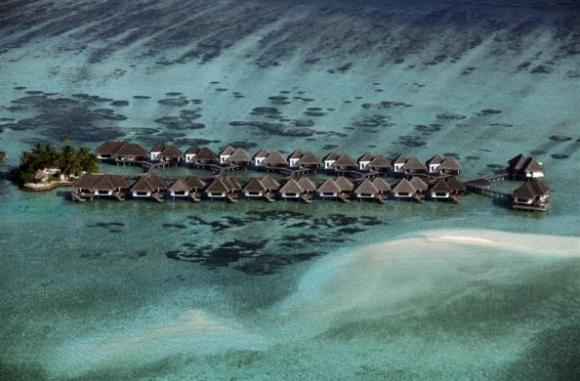
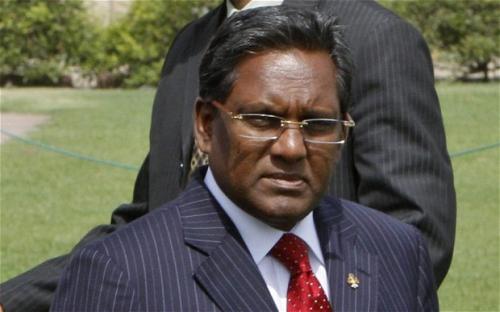
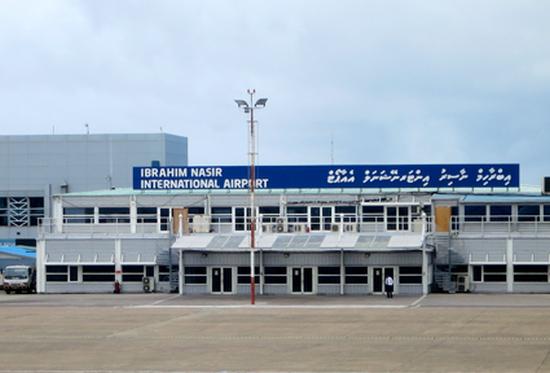

article